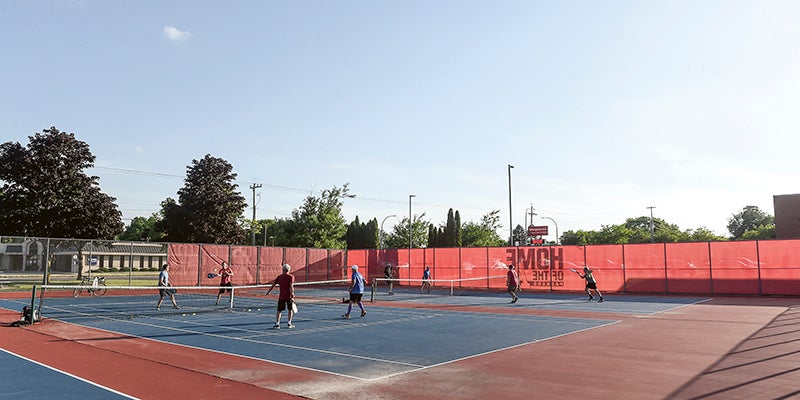Teachers back new Minnesota climate education standards, but topic’s still hot
Published 8:12 am Wednesday, December 12, 2018
By Cody Nelson
MPR News/90.1 FM
Kay Nowell is a veteran science teacher in the St. Michael-Albertville public schools. Still, she feels the need to tread lightly when the topic of climate change comes up in her classroom.
Despite the facts, teaching climate change can bring a political backlash from parents and others who doubt the science.
“That’s always in the back of my mind,” she said, “because I want to teach kids, but I don’t want to push that envelope where I’m going to get a parent phone call.”
It’s one reason why Nowell and teachers across the state are welcoming proposed science education standards that would, for the first time in Minnesota, teach that humans are the primary cause of climate change.
While some educators already teach about humans’ impact on the climate, they say writing it into state standards would be added muscle if they face pushback from students or parents. And it would help ensure the topic gets taught.
“The more we can get it to be the norm, the easier my job would be because then it’s like, well I’m teaching what is required here because it’s been proven,” said Nowell, a high school teacher. “I’m not on my own.”
The Minnesota science education standards get an update every 10 years. A committee of K-12 educators, higher education representatives and community members create and revise the standards during a monthslong review and approval process.
Once they’re in place, teachers’ coursework must align with statewide standards, although individual educators and districts still have final say in how they present concepts to students.
Members of the public have opportunities to comment before the final standards take effect. So far, there has been a mix of reactions to the new climate change standards, said Josh Collins, the Minnesota Department of Education’s director of communications. No staff from the department sit on the committee writing the standards.
The first public comment period has closed, and a second draft of the standards is expected mid-February.
If approved, the standards would be phased in starting next year.
Teaching around the politics of climate change
Climate science has become highly politicized over the past decade. Southeastern Minnesota eighth-grade teacher Peter Johnson said he’s seen it first-hand.
Opposition to climate science in his classroom is “purely political,” he said — kids tend to take on their parents’ political beliefs.
Most skeptical students rethink their views once they learn the science, said Johnson, who’s been teaching five years in Pine Island Public Schools. He’ll show them data on warmer winters or earlier ice-out dates.
“If you present the actual trends [and] change in data, the pushback disappears and ends up flipping to, ‘Yeah, I still think this way politically … (but) yeah, we’re messing with our climate and I wish we were dealing with it,’” Johnson said.
Several teachers interviewed for this story noted a lack of science literacy among students and the general public.
Sometimes, the crush of subjects teachers must cover leads to topics like climate science being glazed over.
“There’s a lot of schools where I think, mostly based on time, [climate change is] not a priority because people have so many other things to teach,” said Laura Hanson, who teaches eighth, ninth and 10th grade in Norwood Young America. “So if there is a standard, I think more people will include that into their curriculum because it’s part of what we’re supposed to spend time on.”
With limited time, it’s tough to dig into why scientific facts exist. Students can wind up just demonstrating knowledge of concepts, not the science which underlies them.
“Until we start to look at more scientific literacy and the ability of kids to break things down, we’re just doing a ‘he said, she said,’” Nowell said.
Still, younger people have the most at stake when it comes to climate change. They’re also the ones who care about it the most: polls show younger generations are far more concerned by climate change than older ones.





